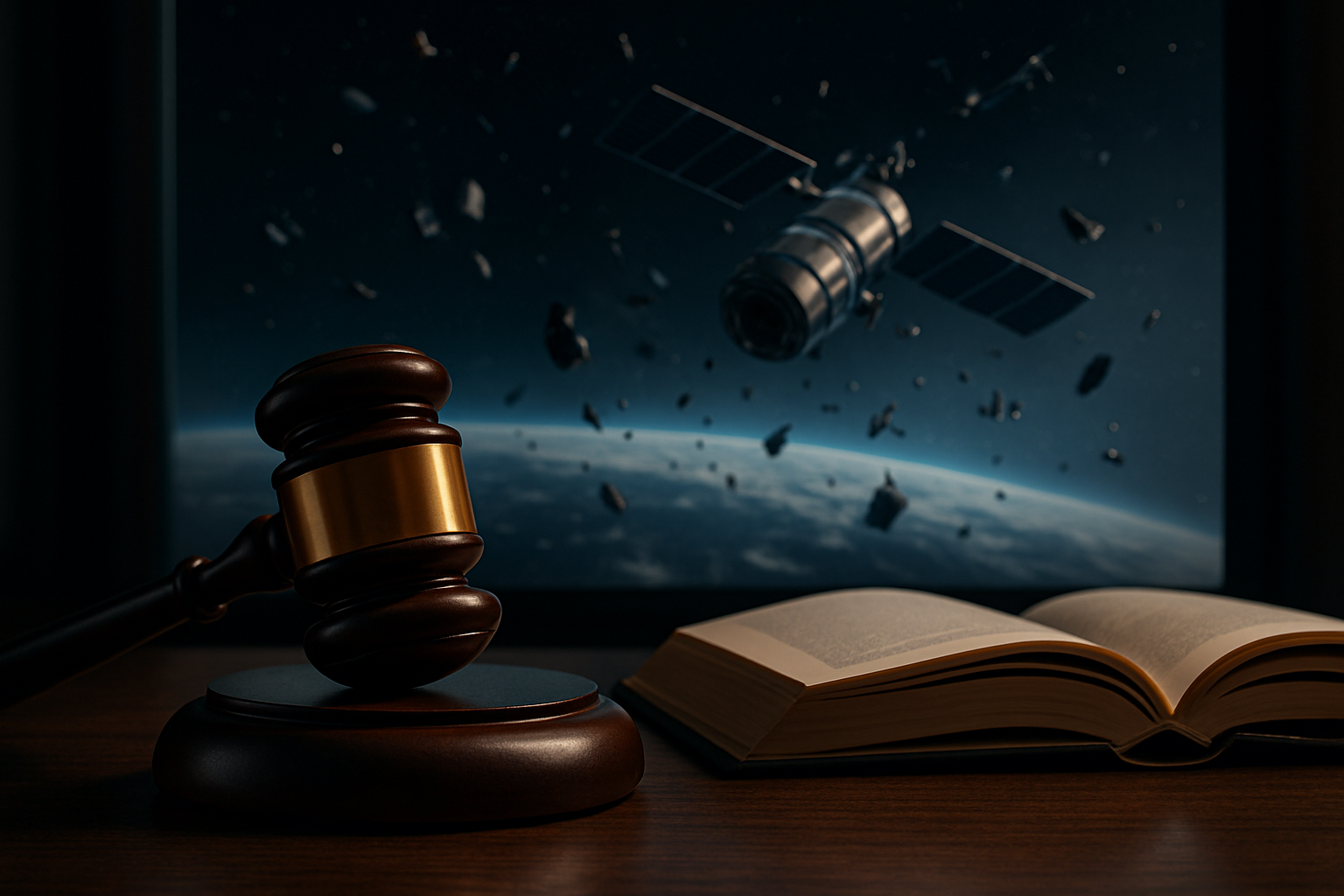The Legal Landscape of Space Debris: A Growing Cosmic Challenge
Introduction: As humanity's presence in space expands, a new frontier of legal challenges emerges. Space debris, the orbiting remnants of defunct satellites and rocket stages, poses significant risks to active spacecraft and future missions. This article explores the evolving legal framework surrounding space debris mitigation and removal, highlighting the complexities of international space law and the urgent need for comprehensive regulations.

Current Legal Framework
The existing legal regime governing space activities primarily stems from the 1967 Outer Space Treaty. This foundational document establishes basic principles but does not directly address the issue of space debris. The lack of specific regulations has led to a patchwork of national guidelines and voluntary international standards. The United Nations Office for Outer Space Affairs (UNOOSA) has attempted to address this gap through non-binding guidelines, but enforceable international law remains elusive.
Challenges in Space Debris Mitigation
Legal challenges in space debris mitigation are multifaceted. One significant issue is the assignment of responsibility for debris removal. Under current space law, launching states retain jurisdiction and control over their space objects indefinitely. This principle complicates efforts to remove debris, as it requires permission from the original launching state, even if the object is no longer functional.
Emerging Legal Approaches
Recent years have seen increased efforts to develop more robust legal mechanisms for space debris management. Some nations have implemented domestic laws requiring satellite operators to have end-of-life plans for their spacecraft. The concept of extended producer responsibility, common in environmental law, is being explored as a potential model for space debris mitigation. This approach would hold satellite manufacturers and operators responsible for the entire lifecycle of their products, including proper disposal.
International Cooperation and Future Directions
The global nature of space activities necessitates international cooperation in addressing space debris. Recent initiatives, such as the European Space Agency’s CleanSpace program, demonstrate growing recognition of the need for active debris removal. However, these efforts also highlight the need for clearer legal frameworks to govern such activities. Future legal developments may include the establishment of an international space traffic management system and the creation of binding treaties specifically addressing space debris.
Economic and Environmental Considerations
The legal landscape of space debris is further complicated by economic and environmental factors. The cost of debris removal missions is substantial, raising questions about funding and economic incentives. Additionally, the environmental impact of space activities, including the potential pollution caused by de-orbiting debris, presents new challenges for space law. Future legal frameworks will need to balance economic interests with environmental protection, potentially drawing inspiration from terrestrial environmental law principles.
Conclusion
The issue of space debris presents a unique and pressing challenge for international law. As space activities continue to expand, the need for comprehensive, enforceable regulations becomes increasingly critical. The evolution of space debris law will likely require innovative legal approaches, international cooperation, and a delicate balance between promoting space exploration and ensuring the long-term sustainability of Earth’s orbital environment. As we venture further into the cosmos, the legal framework governing our activities in space will play a crucial role in shaping the future of human space exploration and utilization.





